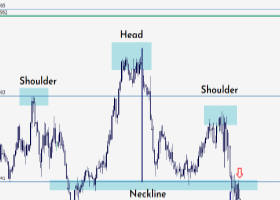The Two Middle Eastern Pegs: Stability Offered is Welcome - BBH
Research Team at BBH, suggests that with yesterday’s gains, the price of Brent has nearly doubled from its lows in January.
Key Quotes
“Of course, the price of oil is still less than half of levels that prevailed two years ago. At the same time, many leveraged investors cast a jaundiced eye toward currency pegs. Many have concluded that the Middle East currency pegs cannot be sustained.
Through a combination of moral suasion and the power of the
sovereign, Saudi Arabia and UAE officials have managed to deter some
speculation in the onshore markets. The offshore (NDF) markets are more difficult to control, and pressure on the pegs remain evident.
Saudi officials first responded with moral suasion and stepped up its monitoring efforts earlier this year. Officials
are now drawing on the power of the sovereign. Saudi Arabia recently
banned the sale of options and other derivatives to speculators for the
purpose of challenging the currency peg. Policymakers are also
requiring banks to provide more information about their clients and
product offerings.
The UAE is in a similar position, but more so. The gap between the onshore dirham (white line) and offshore dirham (yellow line) is even wider than in the Saudi case. The central bank has reaffirmed its commitment to the peg, but UAE officials lag behind Saudi Arabia in backing up those words with actions. Rather than draw much attention to it, the UAE central bank governor has downplayed its significance.
There is no question that the drop in oil prices has cut government revenue in Saudi Arabia and UAE. The issue is whether a devaluation is a reasonable adjustment mechanism. A devaluation would not boost oil exports, while boosting the price of imports. Under current conditions, we see no significant advantage but recognize that a break of the peg risks injecting instability at a time of great economic, political, and social changes.
If it is true that Saudi and UAE officials’ declarations of their commitment to the currency pegs are sincere, the next question is if speculators can topple the pegs. We do not think that the NDF market can force a devaluation on the likes of Saudi Arabia and the UAE. China's use of the offshore yuan market is a different story. It functions differently, and CNH is not the same thing as a yuan NDF. The PBOC is clearly committed to the offshore yuan market, but not to the NDF market.
There are additional measures that Saudi and UAE officials can take to exert even more control over the onshore currency market. However, over time, if they are to be successful in attracting foreign investors to equities and fixed income, officials may want to introduce greater movement in the exchange rates. For now and in the period ahead, however, the stability offered by the pegs is welcome.”
![]()



